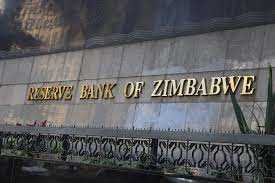
Audrey Galawu
The National Competitiveness Commission has applauded the Monetary Policy Committee for some resolutions on policy measures, which are critical towards enhancing business competitiveness.
The Monetary Policy Committee is committed to seeing efficient, stable and competitive financial markets with minimal obstacles and regulations for sustainable economic development.
The Committee meets regularly and ensures that monetary policy complement fiscal discipline towards achieving low inflation and financial stability.
The MPC reduced, with immediate effect, the Bank Policy rate from 150% to 130% per annum, and the Medium-term Bank Accommodation interest rate for the productive sectors including individuals and Micro, Small and Medium Enterprises was maintained at 75% per annum.
The NCC noted that banks can now access finance from the central bank more cheaply, hence improving their financial soundness.
“More is now available for lending to the productive sectors and individuals.
Commercial bank loans and advances responded positively, increasing from ZWL$1.7 to ZWL$8.5 billion in March and June 2023, respectively, when the interest rate was reduced from 200% to 150%.
“To this end, a further downward review of the interest rate to 130% is anticipated to increase borrowing. However, the maintenance of the 75% interest gives no incentive to the productive sector to borrow despite more being available.
“On the macroeconomic front, this continues to stabilize the inflation rate making the country a better investment destination, thereby improving competitiveness.
“Despite this positive move, Zimbabwe’s interest rate of 130% per annum is extremely higher than regional comparator countries, that is, South Africa (11.75%), Botswana (8.95%), Mozambique (17.25%), Zambia (10%), Malawi (24%) and Namibia (8%).
“To this end, a further reduction of interest rates to the prevailing levels within the region is recommended, as this allows businesses affordable rates to invest towards increased productivity and competitiveness,” NCC noted.
Related Stories
Economist Dr. Prosper Chitambara said the reduction in the bank policy rate is a positive development. It means the cost of borrowing money has actually slightly declined.
“However, the hope is that as the economy stabilises, we should expect a more significant reduction in the reference interest rates, so it’s really dependent on macroeconomic stability in the economy,” he said.
The MPC also resolved that with effect from November 1, 2023, foreign currency retentions on exports be standardised at 75% across all sectors of the economy and all special dispensations granted to some sectors of the economy shall be removed.
NCC said the most affected group is the cotton and tobacco farmers who were at 85%, otherwise, 75% is retained for all other sectors.
This resolution was reached for the sole reason of increasing foreign exchange reserves available to the central bank and Government to meet foreign exchange requirements for the settlement of national and international obligations.
“The Government’s ability to settle its debts improves the country’s creditworthiness to multilateral institutions and other international financiers.
“"However, the misalignment between the parallel market and interbank exchange rates continues to impose exchange rate losses on exporters, hence depriving them of a competitive advantage,” NCC said.
The Commission also noted that only Zimbabwean exporters retain less than 100% of their export proceeds regionally.
Regional peers such as South Africa are providing export incentives such as the Export Credit Insurance and other sector assistance schemes, which makes it difficult for Zimbabwean exporters to compete fairly on the international market.
According to the World Economic Forum, the Export Credit Insurance allows South African export trade by writing export credit loans and investments which will help contractors with international capital goods and services contracts.
“To settle external payments, Government should strengthen the interbank foreign exchange market to unlock free funds and ease pressure on the foreign exchange auction.
“This will be complemented by corporate tax, international remittances, loan proceeds, income receipts and foreign investment,” the Commission added.




















Leave Comments